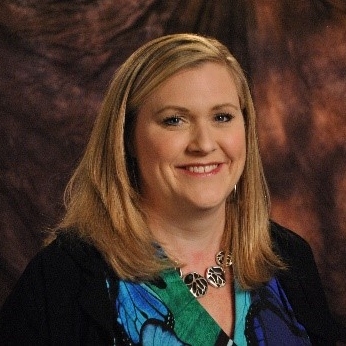Trauma from an Intersectional Perspective
Intersectionality has been a buzzword in the mental health arena for some time, but what does it really mean—and how does it affect the treatment of trauma? Watch this panel of international experts discuss timely issues such as racism, sexism, heterosexism, classism and how these factors influence the trauma recovery process, particularly when multiplied. We explore how a multiply-marginalized person will experience the world around them, leading to trauma experiences significantly different from trauma survivors of the more dominant cultural groups. ISTSS President Dr. Debra Kaysen moderates this can’t-miss panel.
Join ISTSS | Like ISTSS on Facebook | Follow ISTSS on Twitter | Join the ISTSS email list | Donate to ISTSS
Presenters
Moderator
Debra Kaysen, PhD
Stanford University
 Debra Kaysen, PhD, is a professor at Stanford University in the Department of Psychiatry & Behavioral Sciences and is a research psychologist at the Dissemination and Implementation Division of the National Center for PTSD at VA Palo Alto. In addition, Dr. Kaysen is the current president for the International Society for Traumatic Stress Studies. Dr. Kaysen’s area of expertise is increasing access to care in the treatment of PTSD and related disorders across settings and populations.
Debra Kaysen, PhD, is a professor at Stanford University in the Department of Psychiatry & Behavioral Sciences and is a research psychologist at the Dissemination and Implementation Division of the National Center for PTSD at VA Palo Alto. In addition, Dr. Kaysen is the current president for the International Society for Traumatic Stress Studies. Dr. Kaysen’s area of expertise is increasing access to care in the treatment of PTSD and related disorders across settings and populations.
Panelists
Juliette McClendon, PhD
VA Boston Healthcare System; Boston University School of Medicine
 Dr. Juliette McClendon is a psychologist in the Women’s Health Sciences Division of the National Center for PTSD at VA Boston and assistant professor of psychiatry at Boston University School of Medicine. Dr. McClendon is a clinical psychologist who studies the role of racism and discrimination in shaping racial/ethnic mental health disparities and the identification of intervention approaches that can mitigate the impact of racism-related stress and trauma on health.
Dr. Juliette McClendon is a psychologist in the Women’s Health Sciences Division of the National Center for PTSD at VA Boston and assistant professor of psychiatry at Boston University School of Medicine. Dr. McClendon is a clinical psychologist who studies the role of racism and discrimination in shaping racial/ethnic mental health disparities and the identification of intervention approaches that can mitigate the impact of racism-related stress and trauma on health.
Soraya Seedat, MBChB, MMed (Psych), PhD (Panelist)
Stellenbosch University
 Soraya Seedat is a Distinguished Professor of Psychiatry and executive head of the Department of Psychiatry at Stellenbosch University. Her research focuses on gene-brain-behavior interactions in trauma in PTSD, anxiety disorders, NeuroAIDS and fetal alcohol syndrome. She directs the SAMRC Genomics of Brain Disorders Research Unit and holds the South African Research Chair in PTSD.
Soraya Seedat is a Distinguished Professor of Psychiatry and executive head of the Department of Psychiatry at Stellenbosch University. Her research focuses on gene-brain-behavior interactions in trauma in PTSD, anxiety disorders, NeuroAIDS and fetal alcohol syndrome. She directs the SAMRC Genomics of Brain Disorders Research Unit and holds the South African Research Chair in PTSD.
Jillian C. Shipherd, PhD
VA Boston Healthcare System; Boston University School of Medicine
 Jillian C. Shipherd, PhD, is a clinical research psychologist at the Women’s Health Sciences Division of the National Center for PTSD at VA Boston Healthcare System and a professor of psychiatry at Boston University School of Medicine. In addition, Dr. Shipherd serves as Director for the LGBT Health Program at the Veterans Health Administration in Washington D.C. Dr. Shipherd’s area of expertise is the interface of mental and physical health subsequent to trauma with a focus on sexual and gender minority populations.
Jillian C. Shipherd, PhD, is a clinical research psychologist at the Women’s Health Sciences Division of the National Center for PTSD at VA Boston Healthcare System and a professor of psychiatry at Boston University School of Medicine. In addition, Dr. Shipherd serves as Director for the LGBT Health Program at the Veterans Health Administration in Washington D.C. Dr. Shipherd’s area of expertise is the interface of mental and physical health subsequent to trauma with a focus on sexual and gender minority populations.
Additional Resources from the Presenters
Black Feminists from 1800s mentioned:
Kimberle Crenshaw and intersectionality as a term:
- Overview of intersectionality from 2014
- Kimberle Crenshaw's 1989 essay is “Demarginalizing the Intersection of Race and Sex: A Black Feminist Critique of Antidiscrimination Doctrine, Feminist Theory and Antiracist Politics” and her 1991 article is “Mapping the Margins: Intersectionality, Identity Politics, and Violence Against Women of Color.”
- Watch Kimberle Crenshaw's Ted Talk
Watch Trisha Rose’s YouTube video on How Systemic Racism works in a Pandemic.
We also spoke about Minority Stress Theory and LGBTQ Health:
- Meyer, I.H. (2003). Prejudice as stress: Conceptual and measurement problems. American Journal of Public Health, 93, 262-265. doi: 10.2105/AJPH.93.2.262
- Hendricks, M.L., & Testa, R.J. (2012). A conceptual framework for clinical work with transgender and gender nonconforming clients: An adaptation of the Minority Stress Model. Professional Psychology: Research and Practice, 43(5), 460-467.